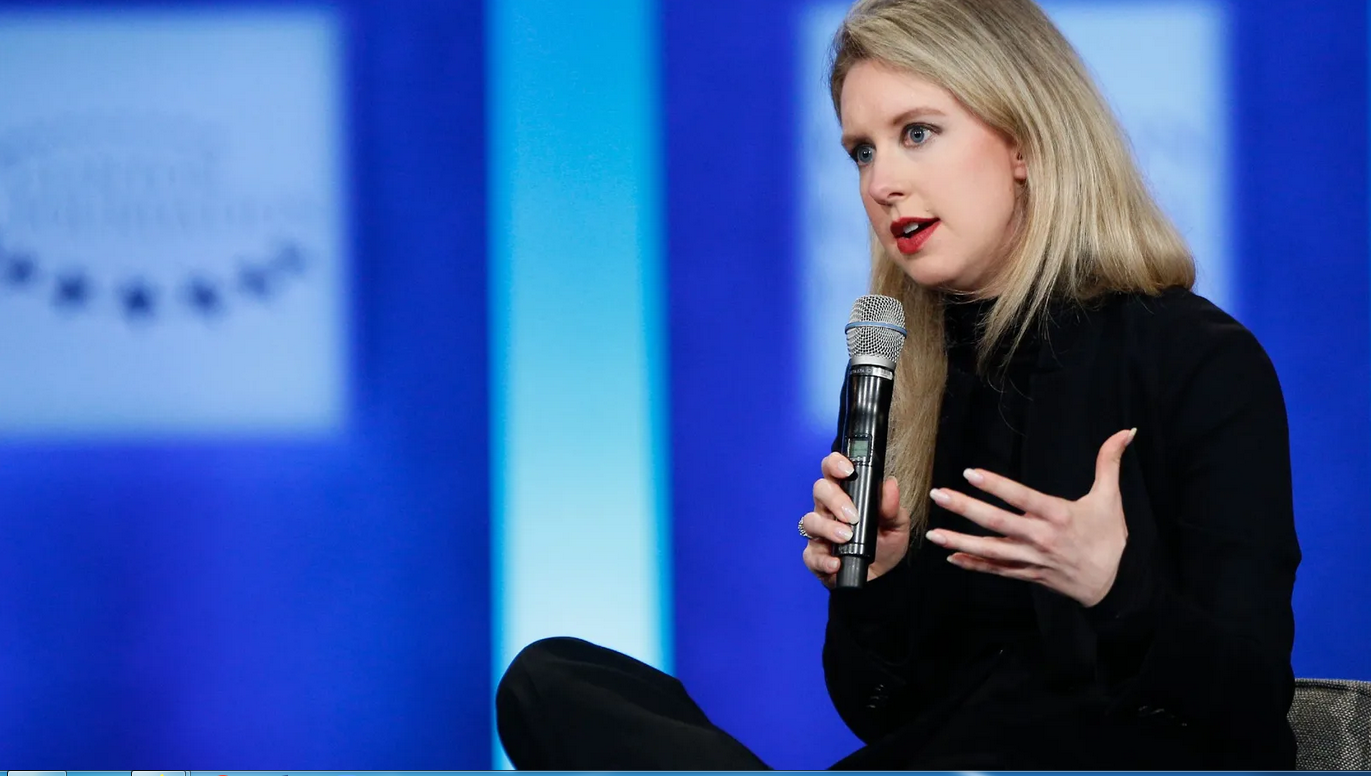In self-deception, we can convince ourselves that our own lies are true and perhaps even be even more convincing about them.
The media today is loaded with individuals who have carried on with a falsehood.
There’s Elizabeth Holmes, the biotech business visionary, who in 2015 was pronounced the most youthful and most extravagant independent female extremely rich person. She presently has to deal with 20 years in jail for misrepresentation. Then there’s Anna Sorokin – otherwise known as Anna Delvey, who professed to be a German beneficiary, and consequently fleeced New York’s high society of a huge number of dollars. What’s more, Shimon Hayut, otherwise known as Simon Leviev – the purported Tinder Swindler.
What denotes these individuals isn’t simply the falsehoods they told others – however the untruths they probably told themselves. They each accepted their activities were some way or another reasonable, and – despite everything – accepted they could never be found out. Over and over, they actually appeared to deny reality – and hauled others into their tricks.
You could trust that this sort of conduct is a generally interesting peculiarity, limited to a couple of outrageous circumstances. In any case, self-duplicity is unimaginably normal, and may have advanced to bring a few individual advantages. We lie to ourselves to safeguard our mental self portraits, which permits us to act indecently while keeping a reasonable still, small voice. As per the exceptionally most recent exploration, self-trickery might have even advanced to assist us with convincing others; on the off chance that we begin accepting our own falsehoods, it’s a lot more straightforward to get others to trust them, as well.
This examination could make sense of problematic conduct in numerous everyday issues – a long ways past the title getting tricks lately. By understanding the various variables adding to self-trickiness, we can attempt to detect when it very well may be influencing our own choices, and keep these daydreams from misleading us.
Shielding the self image
Any clinician will let you know that concentrating on self-double dealing deductively is a cerebral pain. You can’t just inquire as to whether they are tricking themselves, since it occurs underneath cognizant mindfulness. Subsequently, the analyses are frequently exceptionally complex.
How about we start with the examination of Zoë Chance, an academic administrator of showcasing at Yale University. In a clever trial from 2011, she showed that many individuals unwittingly utilize self-trickery to lift their confidence levels.
One gathering of members were approached to take an IQ test, with a rundown of the responses printed at the lower part of the page. As you would expect, these individuals performed impressively better compared to a benchmark group who didn’t have the response key. They didn’t appear to perceive the amount they had depended on the ‘cheat sheet’, notwithstanding – since they anticipated that they would excel on a subsequent test highlighting one more hundred inquiries, without the response key. Some way or another, they had tricked themselves into feeling that they had known the answers for the issues without requiring the assistance.
To make certain of this end, Chance rehashed the entire trial with another arrangement of members. This time, notwithstanding, the members were given a monetary compensation for precisely foreseeing their outcomes in the subsequent test; pomposity would accompany a punishment. Assuming the members were aware of their way of behaving, you could anticipate that this motivator should diminish their carelessness.
As a general rule, it did practically nothing to penetrate the members’ expanded self-conviction; they actually tricked themselves into thinking they were more brilliant than they were, in any event, when they realize that they would lose cash. This proposes that the convictions were veritable and profoundly held – and shockingly hearty.
It’s not hard to perceive how this could apply, in actuality. A researcher might feel that their outcomes were genuine, in spite of the utilization of deceitful information; an understudy might accept they procured their place at a lofty college, regardless of undermining a test.
Moral genuineness
The utilization of self-duplicity to improve mental self portrait has now been seen in numerous different settings.
For example, Uri Gneezy, a teacher of financial matters at the University of California, San Diego, has as of late shown it can assist us with legitimizing possible irreconcilable circumstances in our work.
In a recent report, Gneezy requested that members assume the jobs of speculation consultants or clients. The guides were offered two distinct chances to consider – every one of which accompanied various dangers and various settlements. They were likewise informed that they would get a commission in the event that the client settled on one of the two speculations.
In one bunch of preliminaries, the guides were told about this expected compensation at the actual beginning of the analysis, before they began thinking about the various choices. While they were apparently picking the most ideal decision for the client, they were significantly more prone to go with the decision that was great for themselves.
In the other preliminaries, notwithstanding, the guides were just recounted this possible compensation after they had been given an opportunity to weigh up the advantages and disadvantages of each. This time not many decided to allow the award to impact their choice; they stayed legit to their objective of offering the best guidance to the client.
To Gneezy, the way that the information on the individual advantages just impacted the members’ choice in the primary situation recommends that their self-duplicity was oblivious; it altered the manner in which they were ascertaining the advantages and dangers without them monitoring the predisposition, so they could feel that they were all the while acting to the clients’ advantage. In the subsequent situation, it would have required a total difference at the top of the priority list, which would have been more diligently to legitimize to themselves. “They just couldn’t persuade themselves that they would be acting morally,” he says.
Along these lines, self-duplicity is an approach to safeguarding our feeling of ethical quality, says Gneezy. “It implies that we can keep on considering ourselves to be great individuals,” he says – in any event, when our activities would recommend in any case.
This type of self-double dealing may be generally clearly applicable to monetary consultants, however Gneezy figures it could likewise be significant for private medical care. Regardless of meaning well, a specialist could unwittingly beguile themselves into thinking the more costly treatment was best for the patient – without perceiving their self-trickiness, he says.
Convincing ourselves, convincing others
Maybe the most amazing result of self-double dealing concerns our discussions with others.
As per this hypothesis, self-duplicity permits us to be more certain about what we are talking about, which makes us more convincing. On the off chance that you are attempting to sell a dodgy item, for example, you will present a superior defense in the event that you really accept it is a top notch deal – regardless of whether there is proof to propose in any case.
This speculation was first proposed many years prior, and a new paper by Peter Schwardmann, an associate teacher of conduct financial matters at Carnegie Mellon University, US, gives areas of strength for a to this thought.
Like Chance’s review, Schwardmann’s most memorable trials started with an IQ test. The members weren’t given the outcomes, yet after the test was done, they needed to secretly rate well their thought process they’d done. They then stepped through an exam of influence: they needed to remain before a jury of counterfeit businesses and persuade the board of their scholarly ability – with an expected 15 euro ($16, £12.80) reward assuming the adjudicators accepted that they were among the most brilliant in the gathering.
Certain individuals were told about the influence task before they evaluated their trust in their exhibition, while others were told a short time later. In accordance with the speculation, Schwardmann tracked down that this changed their appraisals of their capacities: the earlier information that they would need to persuade others brought about more prominent carelessness in their capacities, contrasted with the people who had not yet been told. The need to convince others had prepared them to imagine that they were more astute than they truly were.
He depicts this as a sort of “reflex”. Critically, Schwardmann’s examinations showed that the self-double dealing paid off; unwarranted carelessness did to be sure expand individuals’ capacity to convince the fake businesses.
Picking sides
Schwardmann has now noticed a comparative cycle in discussing competitions. At these occasions, the members are given a subject and afterward haphazardly doled out a perspective to contend – prior to being given 15 minutes to set up their contentions. During the discussion, they are then decided on how well they put forth their perspective.
Schwardmann tried the members’ very own convictions about the subjects before they had been alloted their situation, after they had begun planning their contentions, and after the actual discussion. In accordance with the possibility that self-duplicity developed to assist us with convincing others, he found that individuals’ convictions considerably different after they had been informed which side of the discussion they would have to contend. “Their confidential convictions moved towards the side that they’d been allowed only 15 minutes in advance – to line up with their influence objectives,” says Schwardmann.
After the discussion, the members were likewise allowed the opportunity to distribute little amounts of cash to noble cause – chose from an extensive rundown of possible associations. Schwardmann found they were substantially more ready to pick associations that lined up with the place of their contention – despite the fact that it had at first been picked indiscriminately.
Large numbers of our perspectives might have been shaped along these lines. In legislative issues, it may be the case that a campaigner who is approached to material on a specific point truly comes to convince oneself that it is the main approach to review the point – not on the grounds that they have painstakingly evaluated current realities, however basically in light of the fact that they were approached to pose the viewpoint. To be sure, Schwardmann suspects this interaction might lie behind a large part of the political polarization we see today.
Hallucinations of greatness
In this multitude of ways, our minds can trick us into accepting things that are false. Self-trickery permits us to blow up our assessment of our own capacities, so we accept we are more astute than everybody around us. It implies that we ignore the repercussions of our activities for others, so we accept that we are for the most part acting in an ethical manner. What’s more, by misleading ourselves about the veracity of our convictions, we show more noteworthy feeling in our perspectives – which can, thusly, assist us with convincing others.
We can’t at any point know what was really going through the personalities of Holmes, Sorokin or Hayut and other fraudsters – yet it is not difficult to guess how a portion of these components might have been influencing everything. At any rate, these rascals appear to have had strangely high assessments of their own capacities and their entitlement to get what they need – and they cheerfully disregarded the possible moral ramifications of what they were doing.
Holmes, specifically, appears to have had faith in her item, and endeavored to legitimize her utilization of misdirecting information. In spite of all proof running against the norm, she actually announced at her preliminary that “the enormous clinical gadget organizations like Siemens could undoubtedly recreate what we had done”. Hayut, in the mean time, actually asserts he is “the greatest man of honor”, who misunderstood entirely sat idle.
Schwardmann concurs some fraudsters could be able to occupy extraordinarily elaborate untruths. He brings up that some even show a sort of equitable resentment when they are being addressed, which may be difficult to counterfeit. “Perhaps that is an indication that they truly become involved with their own untruth,” he says.
Unsurprisingly, a longing for societal position appears to build individuals’ propensity for self-trickery. At the point when individuals feel compromised by others, for instance, they are bound to expand their impression of their own capacities. It is possible that the greater the stakes, the more noteworthy the untruths we can tell ourselves.
More often than not, our self-misdirection might be harmless – permitting us to feel somewhat more positive about ourselves than is legitimate. In any case, it’s consistently worth monitoring these propensities – particularly in the event that we’re settling on possibly groundbreaking choices. You would rather not trick yourself about the dangers of compromising in your present place of employment, or the probability of progress from a gutsy vocation move, for instance.
One great approach to penetrating a wide range of predisposition is to “think about the inverse” of your decisions. The method is all around as clear as it sounds: you attempt to find every one of the reasons that your conviction might be off-base, as though you were cross examining yourself. Different examinations have shown that this leads us to contemplate what is happening. In lab tests, this methodical thinking ends up being substantially more viable than essentially telling individuals to “think judiciously”.
This is just conceivable in the event that you can acknowledge your defects, obviously. The initial step is recognizing the issue. Maybe you imagine that you needn’t bother with this guidance; self-double dealing just besets others, while you are completely straightforward with yourself. Assuming this is the case, that might be your most noteworthy dream of all.








